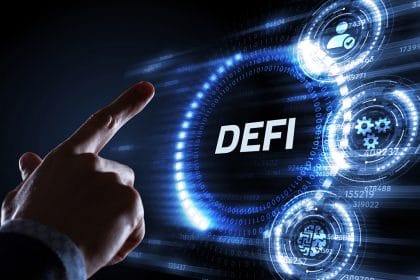New generation blockchains increase throughput to several thousand transactions per second with new engineering solutions such as PBFT proof of stake.
Decentralized exchanges are designed for those who value anonymity and independence from regulators. In this article, you will learn how to get back anonymous transactions in the blockchain system and why you need to pay attention to exchanges based on the “fifth generation” blockchain.
How It All Started
Crypto exchanges are a necessary tool for working with digital assets. The main flow of transactions goes through centralized exchanges like Binance, Huobi, HitBTC, OKEx and others. They are established according to the classic brokerage approach, when the user deposits the crypto and currency in the depository of a centralized exchange and makes a withdrawal request after trading.
Centralized exchanges might have their advantages. To make the system work, it has regulators and manuals. Still, they are a huge risk for the customers, because the accounts are hacked now and then, and buyers are cheated, despite all the legal mechanisms.
Any centralized agent is under legal regulation of its activities, because of the attempt to streamline the system. Therefore, at the moment the user makes a transfer from his wallet to the counterparty’s depository, he loses anonymity which is the main advantage of a crypto asset.
Centralized crypto exchange has destroyed the right to digital privacy, although it was originally created to preserve the anonymity of digital transactions. After state regulators and corporations took away this right.
Crypto developers community was not satisfied with this situation, so they developed an ecosystem of decentralized exchanges. This was a complex task that was solved after the emergence of smart contracts in such networks as Ethereum and decentralized exchange solutions as Uniswap on Ethereum.
How Decentralization Works
Smart contract system allows you to trade without using centralized counterparties, like exchanges or brokers. Thus, your depository is a special wallet linked to smart contracts. This allows you to maintain the anonymity of transactions and avoid the risks associated with the human factor, like brokers, counterparties, regulators.
Almost all successful in terms of liquidity Decentralized Finance (DeFi) projects are based on Ethereum. From 95 to 99 percent of all the liquidity of decentralized exchanges is now locked in Ethereum smart contracts of various projects. This was because it was the first, despite the fact that Ethereum has its minuses, e.g.:
- slow and expensive transactions, about 10-20 per second;
- low network throughput capacity;
- not profitable for microtransactions.
But most users trust this network, mostly because of the huge community and the great belief in Ethereum.
Is There an Alternative?
Due to the low throughput, in order not to overload the network, ether cuts off access to microtransactions with the help of high-cost transfers. Because of this, small businesses and common users do not prosper from working with Ethereum.
New generation blockchains, like Free TON, approached this task differently. They increase throughput to several thousand transactions per second with new engineering solutions such as PBFT proof of stake. The network selects a certain number of participants once in a certain period, for example, once a week. Each participant has to validate some part of the blocks. Participants synchronize with each other according to a certain algorithm, and so the network reaches a consensus. With every new release, the network increases its throughput and the number of transactions increases. This helps to preserve transaction costs, high throughput, and most importantly, independence from centralized counterparties, such as classic exchanges – Binance, Huobi, HitBTC, OKEx, and others.
As a result, working with “fifth generation” blockchains brings profits to small businesses and safety to ordinary users. And besides, they still have the two main advantages of crypto – digital anonymity and safety. Because independence and decentralization are the basic principles of blockchain and cryptocurrencies.
Please check out latest news, expert comments and industry insights from Coinspeaker’s contributors.




